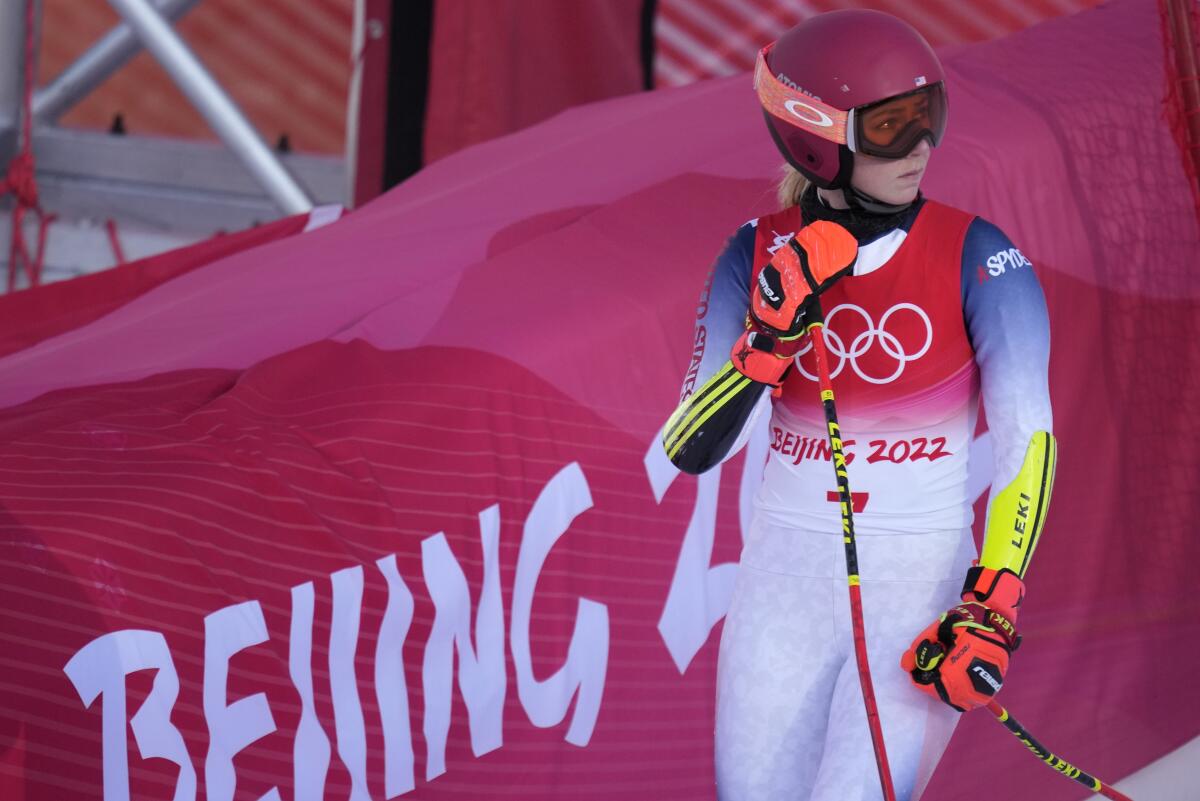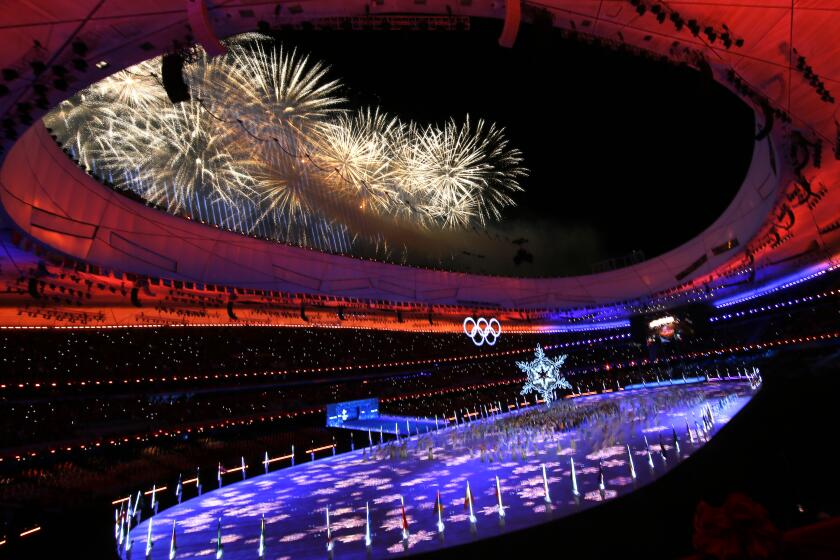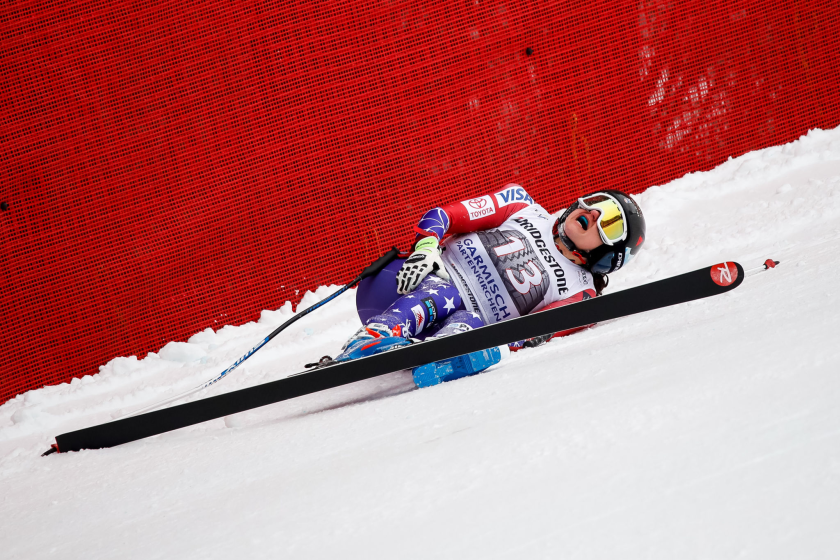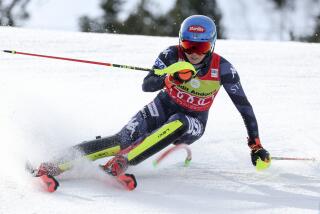Mikaela Shiffrin won’t defend giant slalom title after slipping out of race

BEIJING — The night before Mikaela Shiffrin’s first race at the Beijing Olympics, a post on her social media accounts endorsing headphones carried a simple tagline: “Yeah, I am human.”
The words meant something much different Monday.
The world’s top female skier fell seconds into her first run of the giant slalom and was eliminated from competition at the Yanqing National Alpine Centre.
In one shocking sequence, the defending gold medalist in the event who was chasing five individual medals at the Games missed a gate, fell on her side, then skied off the course. Her day ended more quickly than the NBC commercial that promotes her as one of the must-watch athletes at the Games as she skis through a dinosaur-filled forest.
Recapping the news, results and highlights from The Times’ team of reporters who covered the 2022 Beijing Olympic Games.
“You’re only five turns into it and it’s like, well, yeah, the day was finished basically before it even started,” Shiffrin said. “But I felt that I had really the right mentality. Actually, I’m proud of those five turns. But, yeah. I mean, it’s a huge disappointment.”
Though she won two World Cup giant slaloms earlier this season and ranked third in the world in the event, a back injury and isolation after testing positive for the coronavirus last year disrupted training.
But the answer, if there is one, to what happened Monday might be more basic in a sport where the smallest mistake can mean the difference between a medal or, as she experienced, not even finishing.
“I skied a couple good turns and I skied one turn wrong,” Shiffrin said. “I really paid the hardest consequence for that and now we have to move forward because there’s a lot still to come.”
A few days earlier, Shiffrin discussed the challenge of competing on an unfamiliar course and how fragile each race can be when athletes are at the mercy of the weather. No test events were held at the mountain after its completion in late 2019 because of the pandemic. That added another variable to an inherently unpredictable sport.
“You could do everything right and get a gust of wind and that’s that,” Shiffrin said. “Control what you can control and try not to get too disappointed.”
Olympic skiers must endure falls and crashes, often leaving them with gruesome and painful injuries. But in their minds, the reward is worth the risk.
The wind that has bedeviled skiers on the mountain for the last week didn’t appear to be a factor in the giant slalom. She described the snow as “incredible, but not forgiving.” Each skier has to connect with their turns perfectly.
There are plenty of opportunities to move past the disappointment. She plans to ski the four other individual events — the slalom is next on Wednesday — if the weather cooperates and leaves the schedule intact. Another gold Olympic medal would give her three in her career — and become the most by any U.S. Alpine skier.
She didn’t want to dwell on the abrupt end to the giant slalom, though she admitted the result will always stay with her, the same as every other missed opportunity in a competition.
“I’m not going to cry about this because that’s just wasting energy,” Shiffrin said.
Not long afterward, she started training for the slalom. There wasn’t any time to waste.
More to Read
Go beyond the scoreboard
Get the latest on L.A.'s teams in the daily Sports Report newsletter.
You may occasionally receive promotional content from the Los Angeles Times.









